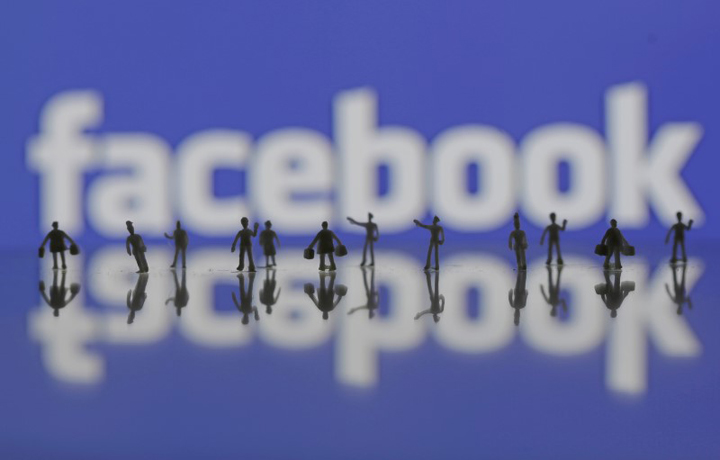Facebook employees have allegedly formed a task force to address the issue of fake news on the social media site, amid CEO Mark Zuckerberg’s public attempts to downplay concerns of misleading articles having an impact on the U.S. presidential election.

According to a Buzzfeed report published Monday, the unofficial task force was formed by Facebook employees who allege fake news “ran wild” on the social network during the presidential campaign. The employees, who spoke to Buzzfeed on the condition of anonymity, said they were concerned about Zuckerberg’s comment that fake news affecting the election was a “pretty crazy idea.”
READ MORE: Mark Zuckerberg says idea fake news stories on Facebook influenced US election is ‘crazy’
“It’s not a crazy idea. What’s crazy is for him to come out and dismiss it like that, when he knows, and those of us at the company know, that fake news ran wild on our platform during the entire campaign season,” one of the employees allegedly told Buzzfeed.
According to the report, more than a dozen employees are involved in the secret task force. The team reportedly plans to brainstorm a list of recommendations to Facebook’s senior management team about the issue.
The report also alleges hundreds of Facebook workers have expressed concerns about the company’s stance on fake news.
When asked to comment on the Buzzfeed report, a Facebook spokesperson said, “While Facebook played a part in this election, it was just one of many ways people received their information – and was one of the many ways people connected with their leaders, engaged in the political process and shared their views.”
The spokesperson did not comment further on the report.
READ MORE: Why some are blaming Facebook for Donald Trump’s presidential win
Last week, several media outlets published opinion pieces accusing the social network of playing a role in the U.S. election by allowing fake news websites and blogs masquerading as legitimate sources to be featured next to articles from legitimate news sources. Several pundits and media companies were concerned the information may have swayed voters towards President-elect Donald Trump.
In a statement posted to his personal page over the weekend, Zuckerberg claimed fake news articles and hoaxes account for less than one per cent of the content on Facebook, noting that the company has taken steps to ensure users can report fake news to remove it from the platform. Facebook does not release statistics regarding what type of content appears on its site, therefore its unclear exactly how much content from these websites actually exists on the social network.
“Overall, this makes it extremely unlikely hoaxes changed the outcome of this election in one direction or the other,” wrote Zuckerberg.
According to Buzzfeed, some employees were concerned the company did not devote enough resources to investigating user reports of fake news and instead relied on algorithms to detect misleading articles.
Facebook has been working to rid its platform of so-called “click bait” using an algorithm that identifies phrases commonly used in these stories, including things like “… you won’t believe what happens next.” It will also consider items “clickbait” if a headline exaggerates information or is misleading.
Facebook and Google to crack down on fake news by restricting ad revenue
Meanwhile, on Tuesday, both Facebook and Google announced new measures to target the spread of fake news, by cracking down on how misleading websites make money through advertising.
Google said it is working on a policy change to prevent websites that misrepresent content from using its AdSense advertising network, while Facebook updated its advertising policies to spell out that its ban on deceptive and misleading content applies to fake news.
However, Facebook‘s steps are limited to its ad policies, and do not target fake news sites shared by users on their news feeds.
WATCH: Protests continue in U.S. cities against president-elect Donald Trump

“We do not integrate or display ads in apps or sites containing content that is illegal, misleading or deceptive, which includes fake news,” Facebook said in a statement, adding that it will continue to vet publishers to ensure compliance.
Google’s move similarly does not address the issue of fake news or hoaxes appearing in Google search results. That happened in the last few days, when a search for ‘final election count’ for a time took users to a fake news story saying Trump won the popular vote. In fact, votes are still being counted, with Democratic candidate Hillary Clinton showing a slight lead.
Google did not say whether they’ve moved to a mechanism for rating the accuracy of particular articles.
READ MORE: Mark Zuckerberg explains why he thinks fake news on Facebook did not influence the US election
Rather, the change is aimed at assuring publishers on the network are legitimate and eliminating financial incentives that may motivate the production of fake news.
“Moving forward, we will restrict ad serving on pages that misrepresent, misstate, or conceal information about the publisher, the publisher’s content, or the primary purpose of the web property,” Google said in a statement.
Neither company revealed how it would implement or enforce the new policy.
– With files from Reuters




Comments